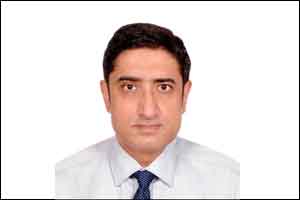- Home
- Editorial
- News
- Practice Guidelines
- Anesthesiology Guidelines
- Cancer Guidelines
- Cardiac Sciences Guidelines
- Critical Care Guidelines
- Dentistry Guidelines
- Dermatology Guidelines
- Diabetes and Endo Guidelines
- Diagnostics Guidelines
- ENT Guidelines
- Featured Practice Guidelines
- Gastroenterology Guidelines
- Geriatrics Guidelines
- Medicine Guidelines
- Nephrology Guidelines
- Neurosciences Guidelines
- Obs and Gynae Guidelines
- Ophthalmology Guidelines
- Orthopaedics Guidelines
- Paediatrics Guidelines
- Psychiatry Guidelines
- Pulmonology Guidelines
- Radiology Guidelines
- Surgery Guidelines
- Urology Guidelines
Pulmonary hypertension in left heart disease Revisited with Prof Vimal Mehta

Prof Dr Vimal Mehta, the leading academician and Cardiologist at GB Pant Hospital published a State of art paper in the Archives of Medical Science reviewing Pulmonary hypertension in left heart disease.
Pulmonary hypertension in left heart disease (PH-LHD) is the most prevalent form of Pulmonary hypertension which is classified as group 2 Pulmonary hypertension as per WHO classification.With the increasing prevalence of congestive heart failure, there is a comparative rise in the number of patients with associated PH leading to increased morbidity and mortality.
Vimal Mehta et al in the article at Archives of Medical Sciences have highlighted hemodynamics, pathophysiology, the role of echocardiography and right heart catheterization in PH-LHD in detail. The significance of PH associated with congestive heart failure as well as valvular heart disease has also been exhaustively discussed by the authors.In addition to this Pulmonary function abnormalities and influence of genetics in the development of idiopathic PH has also been covered vividly.
- In the opinion of the authors, aggressive medical management of HF-REF primarily includes diuretics, angiotensin converting enzyme inhibitors, angiotensin receptor blockers, β-blockers and mineralocorticoid receptor antagonists.
- Digoxin can be used as second-line drug in patients with persisting symptoms despite being on above-mentioned drugs. Corrective valve surgery/percutaneous intervention is recommended and is usually associated with resolution of symptoms.
- Corrective valve surgery/percutaneous intervention is recommended and is usually associated with resolution of PH . The recent approval of new drugs for pulmonary artery hypertension has rekindled the interest in the treatment of PH. The recent approval of new drugs for pulmonary artery hypertension including pulmonary vasodilators has evoked the interest in the treatment of PH
- The recent approval of new drugs for pulmonary artery hypertension has rekindled the interest in the treatment of PH although the intermediate-term results with them have been disappointing.It was found that Nitric oxide (NO) and prostacyclin are potent pulmonary vasodilators which improve pulmonary hemodynamics by decreasing pulmonary vascular resistance.
- It was also noted that dual endothelin-1 receptor antagonist bosentan and tezosentan, and selective endothelin A receptor antagonist darusentan, showed promising results by improving mean PAP, right atrial pressure, PCWP, and cardiac output. Intravenous bosentan was effective in chronic heart failure and was responsible for the improvement in pulmonary hemodynamics in 24 patients.In a large placebo-controlled study of patients with
- In a large placebo-controlled study of patients with acute decompensated heart failure, intravenous tezosentan led to an acute reduction in left ventricular filling pressures, and increased cardiac index but did not result in improvement in dyspnea or pulmonary edema endpoints. Currently, the use of endothelin receptor antagonists is not recommended for the treatment of PH associated with left heart disease.The role of sildenafil in HF patients with PH has been studied only in few small studies.
The authors concluded that Pulmonary hypertension is common in patients with left heart disease, and is associated with increased morbidity and mortality. Pathophysiologic mechanisms are complex and comprise of both passive and active components secondary to left atrial hypertension. Echocardiography is a screening tool for initial evaluation of patients with PH-LHD. Management of PH focuses upon the treatment of the underlying left heart disease, and associated comorbidities. Although there is no evidence for routine use of PH specific therapies in PH-LHD, there is some suggestion that PDE-5 inhibitors may be useful especially in certain subsets.
You can read the full article by clicking on the following link
Arch Med Sci DOI: https://doi.org/10.5114/aoms.2017.68938

Disclaimer: This site is primarily intended for healthcare professionals. Any content/information on this website does not replace the advice of medical and/or health professionals and should not be construed as medical/diagnostic advice/endorsement or prescription. Use of this site is subject to our terms of use, privacy policy, advertisement policy. © 2020 Minerva Medical Treatment Pvt Ltd